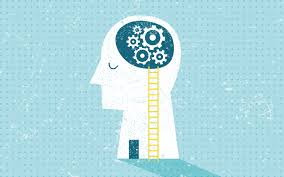 The following article was authored by Holly Welles. Holly Welles writes on real estate and construction across the web, covering the latest in innovation and industry growth. She also maintains her own blog, The Estate Update, and shares more of her work over on Twitter.
The following article was authored by Holly Welles. Holly Welles writes on real estate and construction across the web, covering the latest in innovation and industry growth. She also maintains her own blog, The Estate Update, and shares more of her work over on Twitter.
According to the Bureau of Labor Statistics, there were roughly 7.2 million construction jobs in July of 2018. The industry as a whole is expected to grow steadily through 2026, employing millions of men and women across the country.
The workers in this industry are also at risk of experiencing mental health concerns, with as many as one out of every five workers dealing with mental illness. Who is most at risk, and how can supervisors and business owners support mental health in the construction workforce?
Facing the Statistics
Working in construction brings plenty of risks, most of which can be mitigated by following proper safety procedures. Workers wear hard hats if something is likely to fall on their head, or they wear tethers if they're working high above the ground, but what can they do about the problems that aren't visible?
In construction, workers are six times more likely to commit suicide than they are to die from a fall. Between 2011 and 2015, there were 1,419 suicides among those in the construction industry — more than any other sector.
Factors Affecting Mental Health in Construction
Cultural expectations are one reason this issue is so pervasive. As a male-dominated industry, construction is built on a culture of stoicism and self-reliance. People, men, in particular, don't often ask for help because they don't want to appear to be weak or incapable of performing their assigned tasks.
These figures also reflect larger cultural patterns. The majority of the current construction workforce is made up of men between the ages of 25 and 54. Suicide is the second most common cause of death for this demographic.
Whatever the causes, there’s plenty of room for growth in this arena. The statistics may be sobering, but fortunately, organizations can take steps to support their employees and contribute to positive change. What can construction companies do to help support mental health in their workforce?
Supporting Mental Health in the Workforce
The hard edge of construction culture won't change overnight, but companies and business owners can take steps to help their employees cope with the strain of working in the construction industry.
The first step is to start the conversation with workers about mental health. The topic of mental health is surrounded by a negative stigma, which often prevents people from seeking out the help they need. Opening up a dialogue helps workers identify struggles and feel comfortable coming forward to find solutions.
Companies should also take the time to educate their employees on the symptoms of common mental health conditions. It wasn’t long ago that mental health was often treated as a taboo subject. Consequently, many workers won't know how to recognize the symptoms of depression, anxiety or suicidal ideation.
Awareness is one the most important tools to help supervisors and business owners support mental health in their workforce.
How Can Employers Take Action?
Once the conversation is started, the work has just begun. While discussion and cultural shifts are a fantastic step, there are specific policies companies can put in place to make mental health improvements more actionable. Employers should find ways to support their employee's efforts to get help for their mental health.
For instance, many modern workers don't take the time to take care of their mental health because they're afraid of losing their job or being penalized for taking an afternoon off. Businesses can provide mental health days or flexibility that makes it easier for employees to ask for a day off for a therapy appointment or a trip to the doctor.
The construction industry can also provide support programs for specific challenges workers face. Pain management can affect all aspects of a worker’s life, and without the proper resources, it can be hard to recover from workplace injuries. Plus, thousands of veterans enter the construction workforce each year, making the sometimes challenging transition from military to civilian life.
Companies can respond to these obstacles by cultivating peer support groups, offering on-site mental health services, and training leaders to respond effectively when workers ask for help. It’s a good idea to create a leadership team that can find opportunities for growth and increase awareness of existing programs.
Supporting Mental Health in the Construction Industry
Mental health isn't a new concept. It's just one that wasn't talked about until recently. Construction workers are at high risk because of what their jobs entail and the culture that surrounds it.
This isn't a problem that business owners and supervisors will be able to solve overnight, but it's one that needs to be addressed. Small changes like these can potentially change the entire landscape of the construction industry, altering it from a culture focused on toughness and self-reliance to one that supports the mental health of its workers.
The construction industry is growing, and an increased focus on mental health can contribute to its continued success.
For additional support and information, please visit www.preventconstructionsuicide.com. The Construction Industry Alliance for Suicide Prevention (CIASP) is raising awareness about the risk of suicide within the construction industry and providing suicide prevention resources and tools to create a zero-suicide industry.


